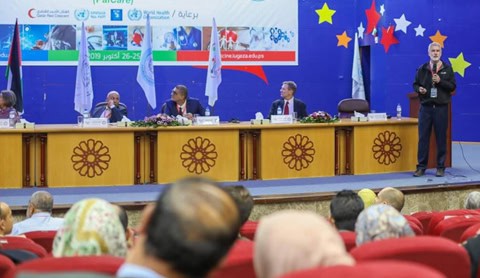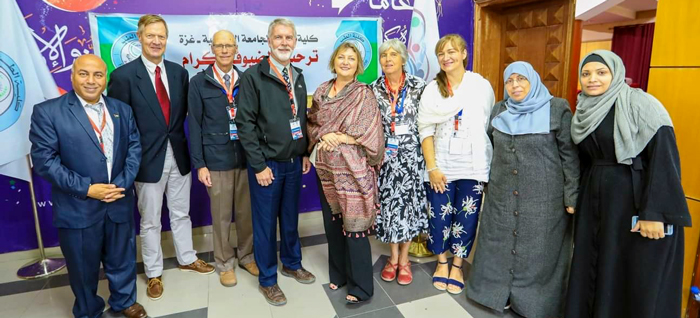Published on April 29, 2020

Last year Dr. McRay made his 25th trip to Israel and Palestine and his fifth visit to Gaza, a small strip of land on the eastern coast of the Mediterranean Sea. Covering only 7.5 miles at its greatest width and 25 miles long, it is home to two million people, most of whom are refugees. Resources are scarce, and medical care is limited, provided in large part by the United Nations. Palliative care is in its infancy, and the supply of opioid pain medications is severely restricted. Hospices are non-existent.
He went to speak on ways to address the lack of hospice physicians at the Islamic University of Gaza Faculty of Medicine’s International Conference, focused this year on Pain Management and Palliative Care in Palestine. Attendees and speakers joined local doctors and scientists from Scotland, Norway, Japan, and the USA.

In Palestine, care for patients with cancer, as well as chronic heart, lung, and kidney diseases is very limited. It does not have any fellowship programs in Hospice and Palliative Medicine (HPM), and there are no physicians with this subspecialty training.
In his presentation, “Transitioning from Primary Care to Hospice Medicine: One Way to Address the Physician Shortage,” he discussed the situation here in the US where we have only about 7,000 physicians board certified in HPM.
Over the next 20 years, we are projected to have a 1% growth in the number of HPM physicians but a 20% growth in the number of patients eligible for palliative care. One approach to addressing this rapidly worsening shortage of physicians is to train primary care physicians (like Dr. McRay) as well as hospital-based physicians to provide more palliative care and to participate in hospice as well. Dr. McRay’s presentation focused on the development of this approach in the US and ways that it might be applicable to the situation in Gaza.
Dr. McRay visits Palestine annually to work with physicians, medical schools, and non-profit organizations who are trying to improve the healthcare infrastructure. He will return to Gaza in September 2020.
